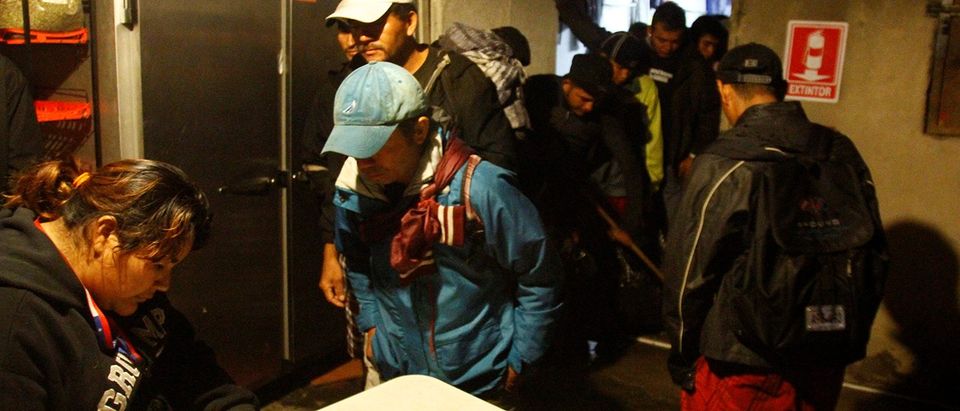The federal register notice for Wednesday announced that the Central American Minors Parole Program is scheduled for termination.
The announcement, made by the Department of Homeland Security, stated it “will no longer provide special consideration of parole for certain individuals denied refugee status in El Salvador, Guatemala, and Honduras under the Central American Minors (CAM) Parole Program.”
“USCIS will no longer consider or authorize parole under the CAM Parole Program. In addition, USCIS will notify individuals who have been conditionally approved for parole under this program and who have not yet traveled that the program has been terminated and their conditional approval for parole has been rescinded,” DHS stated.
The announcement continued, “As noted above, such individuals may apply for parole consideration independent of the CAM program by filing USCIS Form I-131, Application for Travel Document, consistent with the instructions for that form.”
DHS noted that although it is terminating the CAM Parole Program, those who have been “paroled into the United States under the CAM Parole program will maintain parole until the expiration of that period of parole unless there are other grounds for termination of parole under DHS regulations.”
The program, created by the Obama administration, gave specific eligible minors from El Salvador, Guatemala and Honduras refugee status in the United States. The initiative enabled parents legally residing in the U.S. to ask for a refugee resettlement interview for their unmarried sons or daughters under the age of 21 as well as other qualifying family members from Guatemala, El Salvador, or Honduras.
Essentially, only lawful permanent residents and U.S. citizens were able to file family-based immigrant visa petitions. The Obama administration later expanded the program to include other qualifying family members on November 15, 2016.
If a qualifying child was not granted refugee status under the CAM Refugee Program, that minor was then considered by U.S. Citizenship and Immigration Services (USCIS), a component of DHS, for parole into the U.S. on a case-by-case basis under the CAM Parole Program.
“Unlike refugee status, parole does not lead to any immigration status. Parole also does not constitute an admission to the United States,” DHS explains. “Once an individual is paroled into the United States, the parole allows the individual to stay temporarily in the United States and to apply for employment authorization. The alien may stay in the United States unless and until the parole is terminated.”
On January 25, President Trump signed an Executive Order named the Border Security and Immigration Enforcement Improvements that called for DHS to take action to ensure that parole authority under section 212(d)(5) of the Immigration and Nationality Act (8 U.S.C. § 1182(d)(5)) is exercised only on a case-by-case basis and only when an individual demonstrates urgent humanitarian reasons or a significant public benefit.
A spokesman for the USCIS told The Daily Caller, “The Acting Secretary of Homeland Security reviewed the Central American Minors (CAM) Parole program and decided to rescind the program, which automatically considered for parole all individuals found ineligible for refugee status under the in-country refugee program in Guatemala, Honduras, or El Salvador. Accordingly, USCIS will no longer automatically consider parole requests from individuals denied refugee status in El Salvador, Guatemala, and Honduras under the CAM Parole program. Effective immediately, USCIS will no longer consider or offer parole under the CAM Parole program.”


